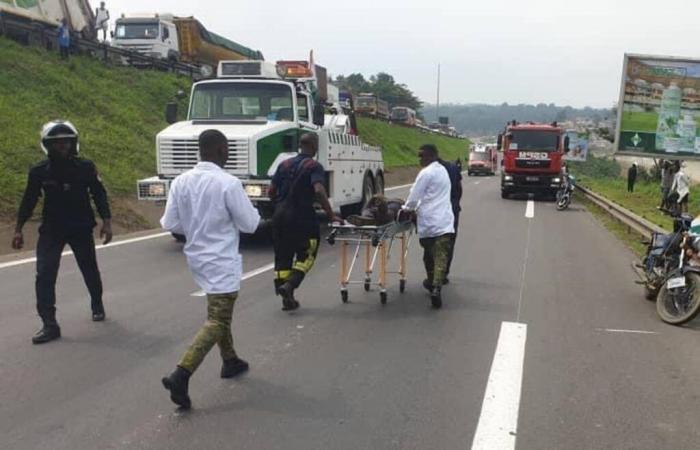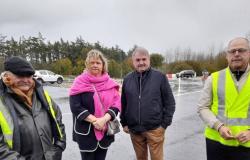From now on, all accident victims, whether insured or not, can benefit from immediate medical care. This was indicated in an interview with the Government Information and Communication Center (CICG), the Director General of the FGA, Maizan Koffi Noël.
Faced with the scourge of road accidents, the Ivorian government has decided to strengthen the role of the Automobile Guarantee Fund (FGA).
The Council of Ministers adopted, on Wednesday, November 20, 2024, a decree which reorganizes the attributions and financing methods of the Automobile Guarantee Fund (FGA).
Asked about this measure, Maizan Koffi Noël provides more in-depth explanations of these reforms:
“The Automobile Guarantee Fund (FGA) is a joint enterprise created by the State of Côte d’Ivoire in concert with all insurance companies operating in the automobile sector.
The State and its partners have, in fact, estimated that a certain number of victims of public road accidents are left behind.
In order to correct this deficiency, the State has set up the FGA to take care of bodily victims of public road accidents in the event of lack of insurance, and victims of road accidents public in the event of a hit-and-run.
When these victims contact the FGA, they are first taken care of on a medical level, before compensation in accordance with the decree creating the FGA, in which the State defines a calibrated scale, of a social nature…
The anchoring of this new activity comes from the national road safety strategy initiated by the Ministry of Transport and involving the Ministry of Finance and Budget, which is the technical Ministry to which the Automobile Guarantee Fund is attached, as well as the Ministry in charge of Health.
The Ministry of Transport has, rightly, made extensive communication around video verbalization in order to publicize the National Road Safety Strategy. The State’s objective is to enable awareness raising and training among users regarding road accident victims, given their large number.
The State has therefore instructed the Ministry of Transport to develop a strategy whose objective is to raise awareness and train users on the Public Highway Code and, in turn, reduce the rate of accidents on public roads, failure to avoid them.
In the event that the accident does eventually happen, care must be taken into account for the victims. To do this, we have put in place a system to broaden the scope of action of the FGA, which already takes care of the two types of victims mentioned above. We are, to date, at 20% support. But the State asked that this field of action be broadened to take care of the remaining 80% so that the action of the FGA is total. Thus, when a public road accident occurs, the FGA intervenes and takes care of the victim.
In the second scenario, insurance companies, although not denying their guarantees, do not always have the time necessary to put their guarantees in place when victims of public road accidents are admitted to the CHR or at the University Hospital. By the time we did it, we realized, based on the diagnosis, that the victim could die.
The State therefore decided to broaden its base by allowing the FGA, given its presence in health centers, to initially take care of these victims. The actors involved in the circuit of public highway action can, after the fact, foresee recourse action to compensate for the resources committed by the FGA. Insurance companies then reimburse the resources committed to caring for the victim.
It’s exactly the same for the state. The State being its own insurer, when one of its cars is involved in a public road accident, the role of the FGA, within the framework of the new system, is to take charge of it. And, when the compensation phase arrives, the victim will have recourse to the judicial agent of the State, who is the State insurer.
The last link is the Brown ECOWAS card with which we have agreed. Under this convention, when vehicles coming from the hinterland (Burkina, Mali) are involved in a public road accident in our country, the victims are not left behind, but are taken care of by the card Local ECOWAS brunette in Abidjan. We will subsequently take recourse action with the Brown ECOWAS card so that it reimburses the resources committed to caring for the victims.
With the signing of this decree, all victims will be systematically taken care of and compensation will be made through the FGA and all of its partners involved in the circuits of public road accident victims.
This measure covers all victims of public road accidents, without exception. As soon as the report, which provides proof of the existence of the accident, is established, all the victims are taken care of.”






